The function of quadprog looks like that: solve.QP(Dmat, dvec, Amat, bvec, meq=0, factorized=FALSE)
My objective function is: 
And my two constraints are: 
Now my aim is to determine the single arguments.
1) First argument Dmat:
In the generel notation is: 
Calculation matrix D which is Dmat:

And because D is symmetric, the solution is

2) Second argument dvec: The linear part of the objective function

3) Third argument Amat: This is the left-hand-side of the constraints

4) Forth argument bvec: This is the right-hand-side of the constraints

5) Fifth argument meq is zero because of only inequality constraints
6) Sixth argument factorized: see question
And now I have to put these six arguments in the function solve.QP(). But here I'm sure that there's a need of further "transformation"...
- When you look at the package description the quadratic part is multiplied by 0.5 and the linear part is negativ

- Also the constraints are differently defined - >= sign

Questions:
- How must I "transform" the first four arguments of
solve.QP() - What does the last argument
factorizedaffect - How can I maximize the function
solve.QP()
Many thanks in advance!
Edit: I have done now my "transformation" like suggested in the link from G. Grothendieck - I hope I have done everything right?!
And when I change the argument factorized=TRUE then I get my expected solution with x1=2 and x2=4.
In the help a R^-1 is mentioned. But sadly I have no clue what that means... Any hints appreciated.


